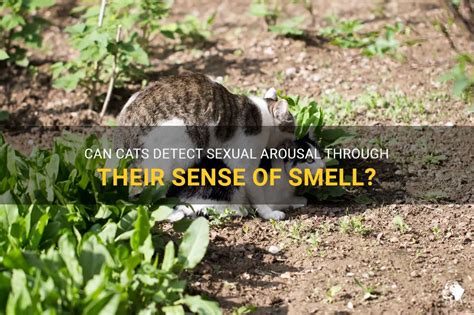Cats are known for their exceptional senses, particularly their sense of smell, which is far more developed than that of humans. While their sense of smell is remarkable, it's essential to understand the extent of their abilities and whether they can detect venom with their sense of smell.
The importance of a cat's sense of smell cannot be overstated. Their olfactory system is made up of 200 million olfactory receptors, compared to only 6 million in humans. This allows them to detect even the faintest scents, which is crucial for their survival. Cats use their sense of smell to hunt, detect danger, and even communicate with other cats.
However, when it comes to detecting venom, the answer is a bit more complex. While cats can detect certain smells associated with venomous animals, it's unlikely that they can detect the venom itself.

There are several reasons why cats may not be able to detect venom with their sense of smell:
- Venom is odorless: Many types of venom are odorless, which means that cats wouldn't be able to detect them even if they had an exceptionally keen sense of smell.
- Venom is not volatile: Venom is not a volatile substance, which means that it doesn't release particles into the air that can be detected by a cat's sense of smell.
- Cats rely on other senses: While a cat's sense of smell is essential for detecting certain dangers, they also rely heavily on their other senses, such as sight and hearing, to detect potential threats.
That being said, cats can still detect certain smells associated with venomous animals. For example, some venomous snakes have a distinctive musky or earthy smell that cats may be able to detect. However, this is not the same as detecting the venom itself.
Can Cats Smell Poison? A Deeper Look
While cats may not be able to detect venom with their sense of smell, they can detect certain poisons. This is because some poisons have a strong, distinct smell that cats can pick up on.
For example, cats can detect the smell of certain toxins, such as pesticides or antifreeze, which can be poisonous to them. However, this is not the same as detecting venom, and cats should still be kept away from any potential sources of poison.

In some cases, cats may be able to detect the smell of certain poisonous substances, such as:
- Antifreeze: Cats can detect the sweet, pungent smell of antifreeze, which is toxic to them.
- Pesticides: Cats can detect the strong, chemical smell of pesticides, which can be poisonous to them.
- Certain plants: Cats can detect the smell of certain plants, such as lilies or castor bean plants, which are toxic to them.
However, it's essential to remember that cats should still be kept away from any potential sources of poison, as their sense of smell is not foolproof.
How Can Cats Detect Poison? A Step-by-Step Guide
While cats may not be able to detect all types of poison with their sense of smell, they can still detect certain poisonous substances. Here's a step-by-step guide on how cats detect poison:
- Olfactory receptors: Cats have 200 million olfactory receptors in their noses, which are responsible for detecting smells.
- Smell particles: When a cat comes into contact with a poisonous substance, the particles from the substance bind to the olfactory receptors in their nose.
- Signal transmission: The bound particles send a signal to the cat's brain, which interprets the smell as either safe or poisonous.
- Behavioral response: If the cat detects a poisonous smell, they will typically avoid it or exhibit a behavioral response, such as hissing or growling.

While cats can detect certain poisonous substances with their sense of smell, it's essential to remember that their sense of smell is not foolproof. Cats should still be kept away from any potential sources of poison, and their owners should take steps to ensure their safety.
Conclusion
While cats have an exceptional sense of smell, they are unlikely to be able to detect venom with their sense of smell. However, they can detect certain poisonous substances, such as antifreeze or pesticides, which can be toxic to them.
It's essential to remember that cats should still be kept away from any potential sources of poison, and their owners should take steps to ensure their safety. By understanding the limits of a cat's sense of smell and taking precautions, owners can help keep their feline friends safe and healthy.






Can cats detect all types of poison?
+No, cats cannot detect all types of poison. While they have a keen sense of smell, they are unlikely to detect odorless or non-volatile substances.
What types of poison can cats detect?
+Cats can detect certain poisonous substances, such as antifreeze, pesticides, and certain plants, which have a strong, distinct smell.
How can I keep my cat safe from poison?
+To keep your cat safe from poison, make sure to keep any potential sources of poison out of reach, such as antifreeze or pesticides, and keep an eye on your cat's behavior around these substances.
